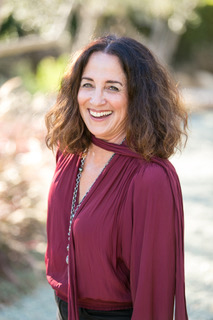While it might seem amusing that there’s a specific day set aside for this purpose, my sense is that most people ditch their resolutions even before they make them. My father used to say, “Why make New Year’s resolutions? They always get broken.”
If you’re the type of person who actually keeps your resolutions, then you’re doing better than most and deserve a pat on the back. Maybe this means that you’re well on your way to fulfilling your resolution.
Perhaps the modern term for making New Year’s resolutions is making New Year’s intentions, which, in the long run, makes much more sense. Setting an intention involves focusing on what you want to manifest in your life. To set an intention is empowering, as it provides you with the choice to make a change…when and where change is needed. It’s a good idea to set intentions on a daily basis, first thing in the morning, as this establishes the tone for the day. However, setting an intention is different from setting a goal. The latter, for the most part, is a valuable aim that you work hard at achieving, but it is more long-term than an intention.
The first step when setting an intention is to decide that you want to do or change something. An addiction therapist once told me that setting an intention is like going fishing. You’re focused on catching a fish by gathering all your equipment, finding a place to fish, and preparing your fishing rod. Then, you cast your line. All your thought processes are geared toward catching that fish. The task becomes your focus. If you had not set the intention to go fishing, you would never even have the chance to catch a fish. This is what setting an intention is all about.
The second step is to decide to surrender to, and manifest, the intention. For example, continuing the fishing analogy, you would keep the focus on going fishing even if you’re distracted by other activities or situations.
Consider noting your intention in your journal. You might begin by writing: “My intention for today is directed toward my highest good. My intention unfolds or manifests in the best possible way. My intention is to…”
You might want your intentions to be quite specific. For example, you might say, “Today I’m going to recount the story of the day my sister was born,” or “Today I’m going to write about the trauma my father caused me.” Intentions are useful in changing behaviors, as in the case of addictions. (But it is important to keep in mind that you can only make intentions for yourself. You can offer hope to other people, but you cannot make intentions for them.)
We all have choices, and we have a choice to make an intention. In his poignant book Man’s Search for Meaning (1984), Viktor Frank said that our choices can affect the trajectory of the rest of our lives. Frankl, a Holocaust survivor, made the choice to remain behind and care for the patients in the concentration camp where he was. He made this decision based on an intention he’d set for himself and on what he saw as his life purpose. He intuited that offering love and care to those in need would lead to his own bliss. As he wisely said, “I understood how a man who has nothing left in this world still may know bliss, be it only for a brief moment, in the contemplation of his beloved” (p. 49). Frankl understood his place in the world and what it meant for him to be a human being, a friend, and a physician.
While intentions focus more on the short term, it’s always wise to set long-term goals as well. This is important, for example, in the case of healing from addictions. However, sometimes due to daily obstacles and/or “triggers” (meaning anything that brings back thoughts, memories, or feelings related to addictive behaviors), setting daily intentions might be more realistic and less daunting. The intention you set for yourself is highly personal, but here are some examples from participants in my writing workshops:
- “Today, I choose recovery.”
- “My intention is to reach out to those who can support my growth and transformation.”
- “My intention is to reach out to those who need love.”
- “My intention is to live one day at a time.”
- “My intention is to not be concerned about what others think.”
- “My intention is to speak my truth whenever possible.”
- “My intention is to be authentic, verbally and when writing.”
- “My intention is to be nonjudgmental, of myself or others.”
- “My intention is to take wise risks, but to do things differently.”
- “My intention is to be lighthearted and look at life with a sense of humor.”
- “My intention is to focus more on just being, rather than on doing, all the time.”
- “My intention is to have a daily intention.”
Originally published at www.psychologytoday.com.
Originally published at medium.com


